WASHINGTON -- Sept. 11, 2001, changed the lives of all Americans.
It was a day of tragedy, yet it had many miracles. It was a day filled with fear, but it was overcome by courage. It was a day of loss, yet it was strengthened by the unity of the country.
However, for five Pentagon employees, Sept. 11, 2001, was nearly the last day of their lives.
The day of gloom and glory began as any other day. "It was one of the most beautiful days you will ever find in Washington, D.C. The sky was clear. It was a crisp, beautiful morning. I'll always remember that," said Martha Carden, an assistant executive officer in the Pentagon.
By 8:30 a.m., the hustle and bustle of the Pentagon was in full motion, and 12 employees within the Army's personnel section were gathering into a conference room for a 9 a.m. meeting.
John Yates prepared the briefing slides for the meeting, and then went on to complete other tasks.
Around 9:20 a.m., a fellow employee called Yates over to a TV screen and they watched the repetitive footage of the attacks in New York. After a few minutes, he called his wife, and before hanging up she said, "Do me a favor. For the rest of the day, work underneath your desk."
Yates, a former Fort Riley soldier, said he then hung up and went back to see if there were any new updates.
In the meantime, the meeting in the conference room was in full swing behind closed doors. The attendees had no knowledge of what was happening in New York City.
Without warning, American Airlines Flight 77 struck the west side of the Pentagon at 9:37 a.m., demolishing the second floor near Yates and Carden.
"There was no, no noise. I mean, I did not hear the plane. Just suddenly the room just exploded, and as I was blown through the air, a ball of fire just came from behind me and over my head, and the room went instantly dark. There was thick, black, choking smoke down to almost to the floor," said Yates, a security manager for the Assistant Secretary of the Army, Manpower and Reserve Affairs.
The once jovial atmosphere in the windowless conference room immediately changed to fear.
"It felt like I was in an earthquake, and immediately it felt like the walls were tumbling in on me, and what was going through my mind is I just don't want to be encaved" said Lt. Col. Regina Grant, an executive officer who was in the meeting. "I could feel the heat across my ears, and just the heat, it was so hot and fierce, and then all of a sudden black dark. You can't see anything. The soot and smoke were so thick you could get a pair of scissors and clip it."
"When the lights went out, that was it. It was the blackest, darkest dark you can imagine," said Carden. "The room started filling with the acrid black smoke."
The first thing anyone heard was Lt. Col. Robert Grunewald who yelled, "Where's Martha'"
"He came over the table to get to me and he said, 'Martha I'll get you out.' From that moment on, I knew that my buddy, Rob, was not going to leave the room without me," said Carden.
The group of coworkers quickly ducked under the table and shuffled toward the E Ring door, but the door that would have unknowingly led to an inferno was locked for security reasons.
"If we would have opened that door, I doubt we would have survived," said Carden.
The group then shuffled to a second door that led to a 25,000-square-foot room filled with a labyrinth of more than 100 cubicles.
"As I got to the door, there stood John Yates," said Grant. "He looked as if he had been blown out of a cannon ball. His clothes were all tattered. He was looking around as if he was looking for someone."
Yates wasn't aware of his surroundings because he had been blown 25-30 feet from where he was standing. "I couldn't see. The air was almost unbreathable because it was so hot and there was so much smoke. Everything I touched burned me."
Yates was blinded by smoke, and he had lost his glasses. He couldn't see more than a foot in front of him, yet he led the escape from the conference room.
"I heard some people calling out. I don't recall doing it, but I must have called out and somebody said, 'Who's that'' and I said, 'John Yates.' Almost before I finished saying my name, somebody grabbed my right leg at the ankle," he said.
Grant said that she grabbed onto him searching for a guiding light because she was unfamiliar to the newly-renovated area.
"I didn't know what to do. I didn't know which way to go next," said Yates. "Suddenly, I heard a voice that said, 'Go out to the DMPM door. It's clear down there.'"
To this day, he doesn't know whose voice hollered that guidance. He can only assume it was his guardian angel.
"I just started crawling toward this voice six to eight inches off the floor trying to breathe," he added. He traveled the width and length of the room toward the fourth corridor, crawling over the fuselage of the aircraft.
"My first conscious thought was that my greatest fear in life was coming true, and that I was going to die in a fire," he said, releasing tears of the memory. "I don't know why, but that has always been my greatest fear. I've been in traffic accidents and I've seen it coming. I've been scared, but this has absolutely been my greatest fear since I can remember, and here it was."
"I thought in the first few moments that I was going to die and I had only been married 15 1/2 months, and that I wouldn't see my wife - my bride. And then, something just kicked in and said, 'Let's get the hell out of here,'" he continued while wiping away the tears.
In the meantime, Carden had latched onto Grunewald, as she crawled with the fear that her clothes were going to catch fire any moment.
"You just knew that the fire was close by, so I thought if I make myself really small, the fire won't get me," said Carden.
"I wondered how long it takes to burn to death, and how badly it would hurt,'' she said. "That was what went through my mind."
She hollered, "Help me! Help me," hoping someone would hear her cries. Just as she was about to succumb, the fire sprinklers released a refreshing and reviving jolt to all in the area.
"The fire sprinklers were about maybe 6 feet, 7 feet apart, and that's what provided me air as I was crawling behind John's feet," said Grant. "Each time I got to a sprinkler, I would sink really low to catch my breath to make it to the next sprinkler."
Eventually, Grant lost Yates' heels in the smoke, and she reached a point where she lost the sanctuary of the sprinklers. The smoke started to overcome her and she began to give up.
"Everything flashed in my mind; my family, my husband, just everything. I got this strange feeling. I was just at peace. I couldn't breathe, but I wasn't afraid. I was just full of energy inside of me," she said.
Tracy Webb, whose office was located in the cubicle farm, heard Carden's screams, but then said it got utterly silent. "I got lost and I panicked so I did the wrong thing and I stood up. I said, 'This is it. I'm going to die.' I couldn't breathe. Everything was on fire around me."
Although both Webb and Grant were ready to surrender, the strength left within the two somehow merged and ignited a spark of adrenaline.
Through the thick smoke, Grant spotted Webb holding her head, which was hit by a fireball. Grant grabbed Webb's skirt and pulled her to the minimal amount of clean air.
"Because of her, my adrenaline just started going again," said Grant. "I yelled, 'Where are you' Where are you,' and a voice said, 'Come through the light. We got you. Come on. We're right out here. Come on we got you.' So I grabbed Tracy. We were crawling some more and we could see there was an opening."
With Yates' previous guidance, Grant had nearly reached the fourth corridor. She and Webb stood up and went into the corridor where she said Sgt. Maj. Tony Rose, Col. Karl Knoblauch and Lt. Col. Victor Correa were holding back the firewall.
"They had the fortitude to come back to open that door. Angels made Tracy appear, and angels had them and their voices to carry me out," said Grant.
Correa can't recall if it was easy or difficult to open the door, he just knows that he opened it. "A lot of victims didn't know where to go once they reached that fire door. They were just choking. Once we opened it, all that smoke came out and it just gave a little sense of breathable air, plus clarity.
"We tried to go into where we knew the impact had happened, but the smoke and the heat would not let us get too far. So, we would go as far as we could, scream, come back, try to grab air in our lungs either by bending down, sucking low to the ground or just trying to get cleaner air. We would gulp that air, run back in, scream, try to look, try to see if we could do something. We just kept on doing that until we made sure that the area was clear," he added.
Within 30-minutes, Yates, Carden, Webb and Grant all made it into the center courtyard. Although Grant's body was safe, her mind was still trapped inside.
"My mind was on where the people were behind me. I was just looking back trying to find people, the ones who I was feeling guilty about. I felt like I left them behind."
Grant felt especially guilty about losing sight of Lt. Col. Dennis Johnson. "To this day, his eyes and my eyes are looking at each other when the light goes out, and he didn't make it out along with two others," she said with anguish.
In all, 184 victims were murdered in the attacks, including those on Flight 77.
"I have said that 11 September was a horrible day, but I think 12 September was probably the darkest day of my life because that's when we learned just who was missing, and when you heard they were missing, you knew what that really meant.
"Some of the finest people that I have ever known were lost that day. It's as painful today as it was then," said Carden a year later.
"Probably my hardest day at work was the first day I came back and I had to erase everybody's name on my database," said Yates. "I still have emails I can't get rid of. I just can't. I don't know why. Someday I'll have to."
The survivors coped with the suffering by talking to counselors, family members and each other.
Grant still believes her fate was in the hands of Yates, Webb, Correa and others. "I know that if it wasn't for John and all those other people who appeared to me or yelled back to me, or opening that firewall, I would have been dead because I had given up. The smoke was overcoming me," she said.
Yates believes that everything happened for a reason. "It's all interwoven together. It is God's grace that I am standing here today...There were two people to the left of me and two people to the right of me, and they're dead now. God just said it wasn't my time or Regina's or Tracy's," he said.
"People have called me an American hero and I'm not. I'm an ordinary guy who was thrust into an extraordinary situation. If I helped Regina get out and she says that and she's thanked me for that, that's my reward other than the good Lord letting me be here today telling this story,'' said Yates.
[Originally published in the Fort Riley Post on Sept. 5, 2002]
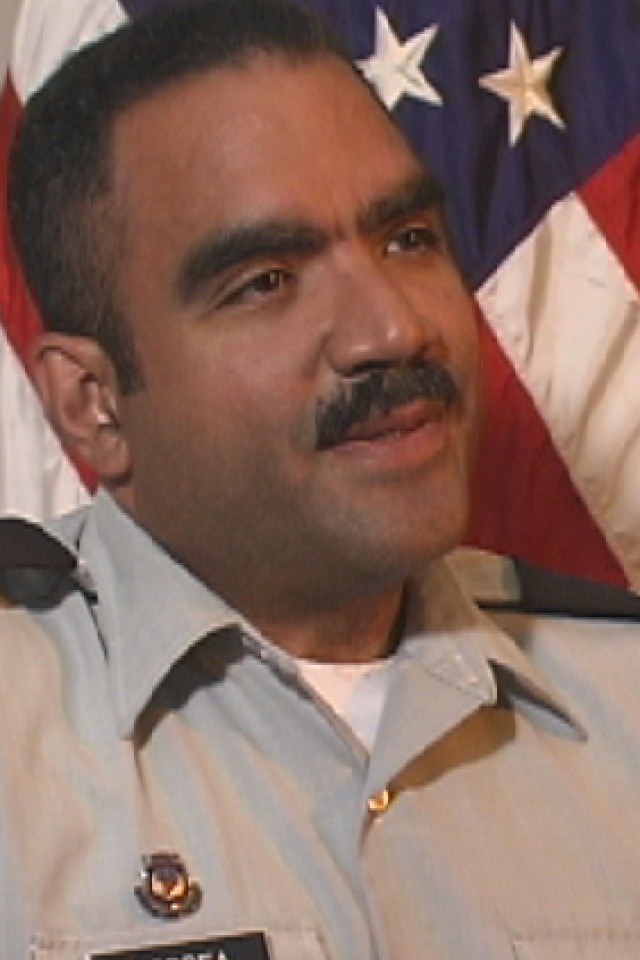

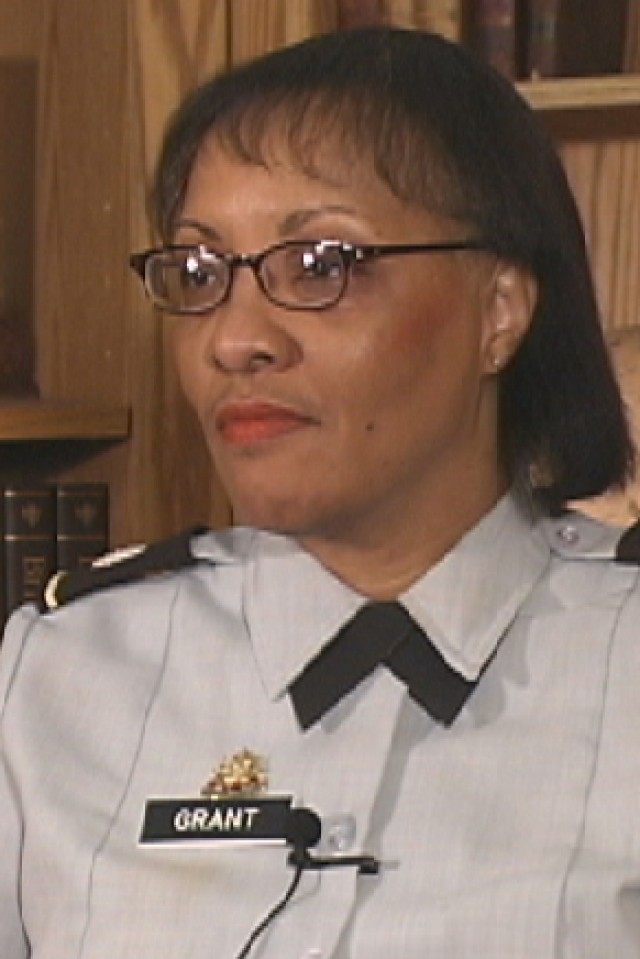


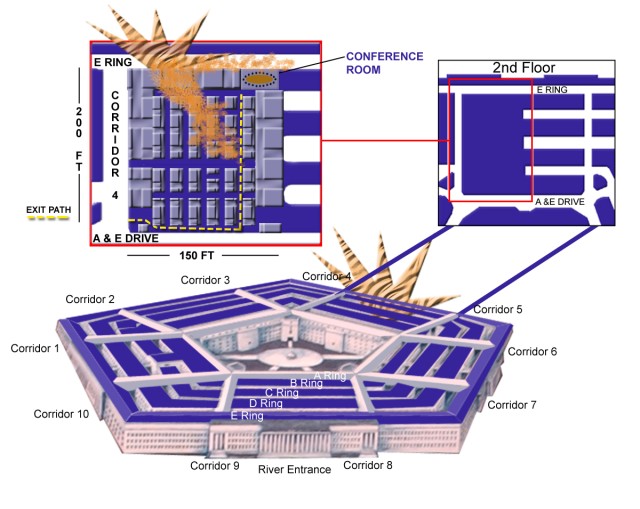
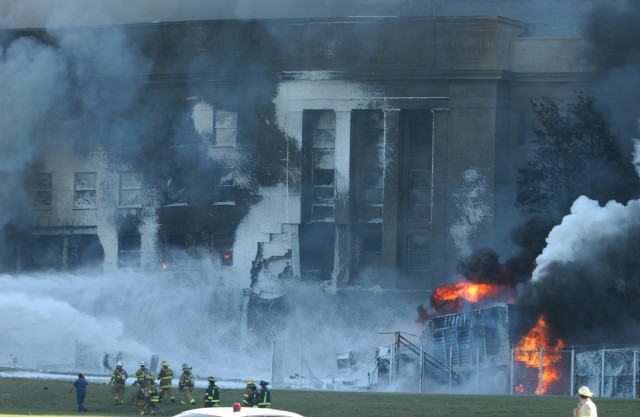





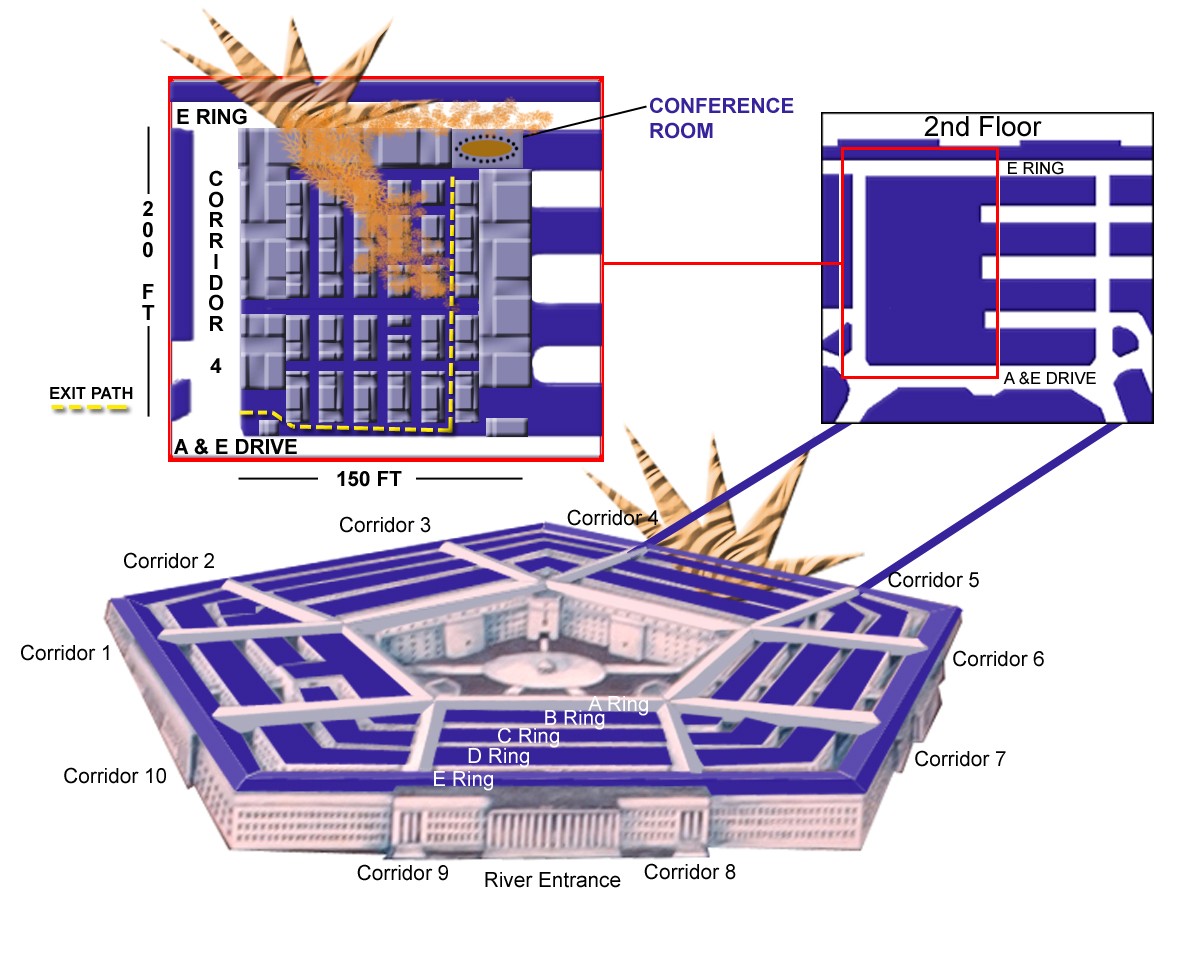

Social Sharing